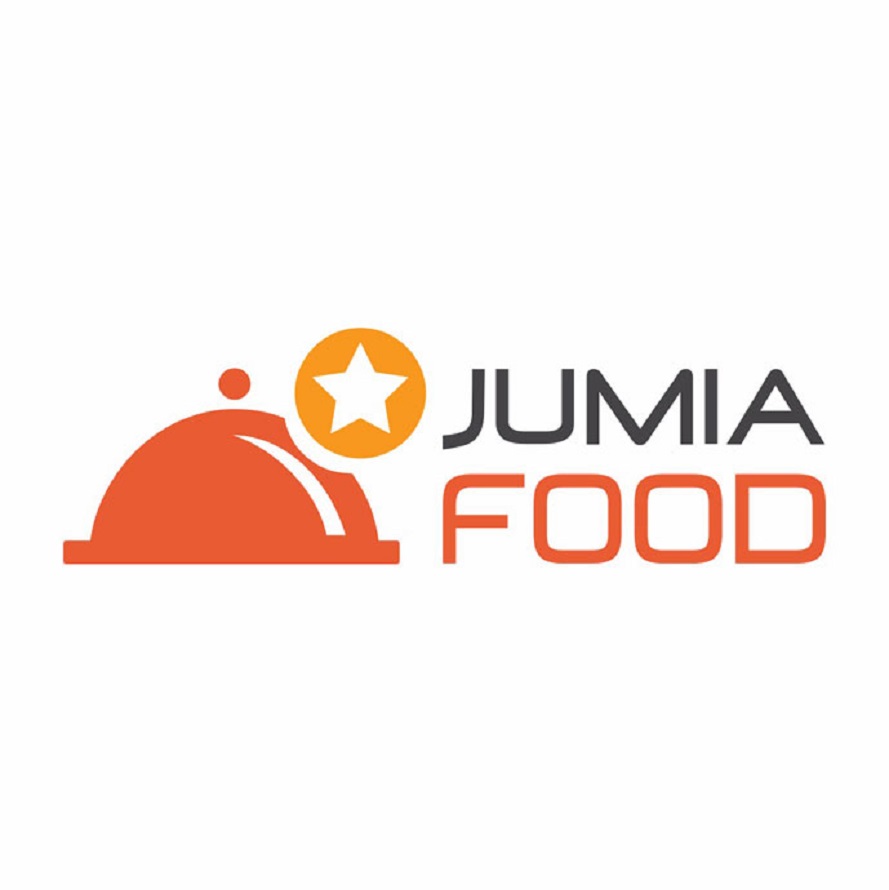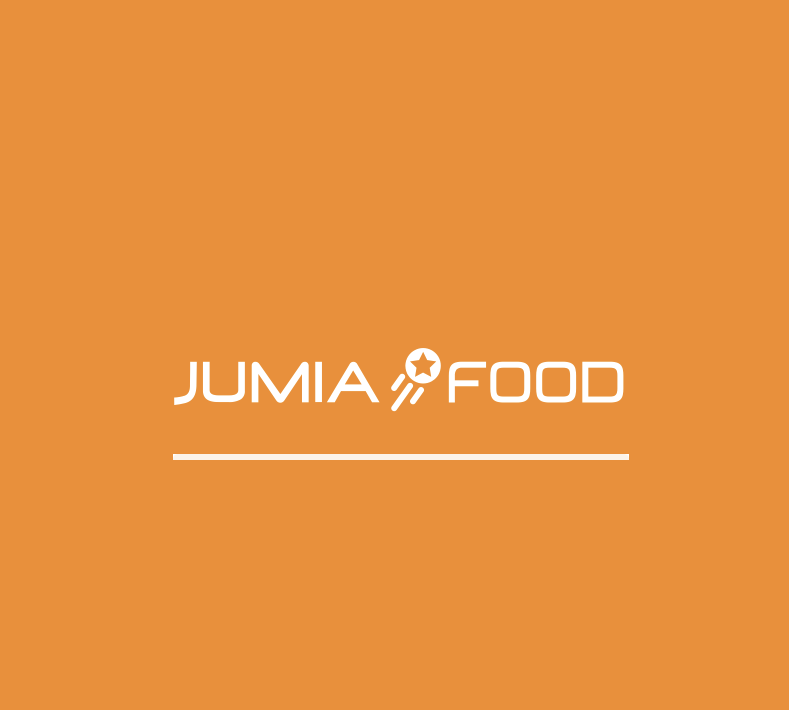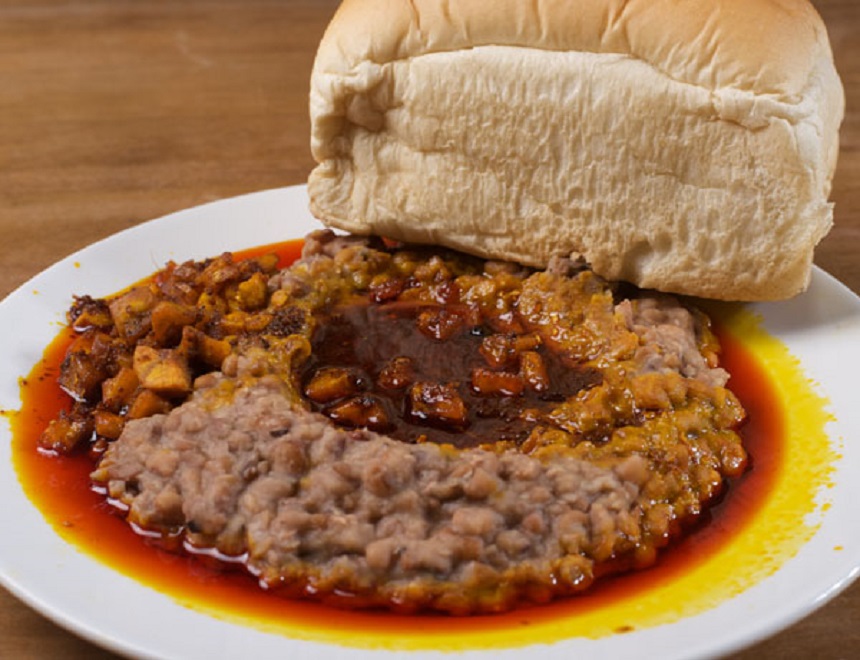Economy
Lagos Leads in Volume of Online Food Orders—Jumia Food Index

By Adedapo Adesanya
Retail giant, Jumia, has published its first Nigeria Food Index, showing the impact of the coronavirus (COVID-19) pandemic on food trends in Nigeria with an increase recorded in online delivery.
The report, released today, showed that the online food delivery is changing habits in unexpected ways for businesses and consumers due to the pandemic, showing the growing popularity of fast food, coupled with the growing trends for convenience and value for money which have opened up opportunities for the food market in Nigeria.
The report indicated that the country’s agricultural sector experienced a major boom in 2019, significantly responsible for the 90.23 per cent contribution made by non-oil sectors to Nigeria’s Gross Domestic Product (GDP).
The index further showed that the food and grocery retail market had total revenues of $44.9 billion, representing a compound annual growth rate (CAGR) of 8.7 per cent in the last eight years.
Similarly, the report revealed that overall grocery retailing continues to expand, as consumers seek comfort and convenience when shopping for food. The food segment was the market’s most lucrative, with total revenues of $33.7 billion, equivalent to 75 per cent of the market’s overall value.
It also showed that online food delivery is gaining momentum through companies such as Jumia Food. With the outbreak of the COVID-19 pandemic, the demand for food rose significantly, especially online food delivery as a result of the lockdown and social distancing guidelines. This was because many people relied heavily on food delivery as opposed to physical shopping in grocery markets.
The report highlighted two major drivers of the growth observed in 2020 – demography and the COVID-19 lockdowns. While with a growing population averaging 18 years old, a new generation of Nigerian middle-class consumers are spending more money online on food and grocery services, the lockdowns induced by the COVID-19 pandemic also contributed to this evolution in habits.
The report further highlighted that, while most restaurants are popular in Lagos, Abuja, Port Harcourt and Ibadan, Lagos leads in terms of volume of online food orders.
It also showed among others, that pizza, Chinese delicacies and shawarma are the most promising cuisines. In terms of peak periods, lunch leads in the time of orders with 65 per cent; weekdays record the biggest volume in orders, peaking on Wednesday at 16 per cent; males place more orders (56 per cent) than females (44 per cent) and Port Harcourt leads in delivery timing at 26 minutes.
The index also showed that while Kentucky Fried Chicken (KFC), Cold Stone Creamery and Pizza Hut come out as the most popular international brands in the country due to consumers’ proclivity to chicken-related orders, Chicken Republic, The Place, Kilimanjaro, Sweet Sensation and Drumstick are the most popular local food vendors due to the affordability of their offers.
Jumia explained that the positive trend recorded in the agricultural sector offers the prospect of increased jobs, greater prosperity, reduced hunger and improved opportunities for Nigerian farmers and entrepreneurs to participate in the global economy.
Over the years, Nigeria’s growing online audience has seen an increase in international brands setting up shop to tap into the growing middle-income segment. Direct investments from players such as KFC, Cold Stone Creamery and Pizza Hut have been achieved.
Online food delivery players such as Jumia have also played a key role in shaping supply chains and opening up the markets to new entrants. Local producers and restaurants have embraced this evolution and reached new consumers as well as grown their businesses in spite of these challenging times.
“This pandemic crisis has shown the world that online food delivery is not just a commodity, but a necessity. The food business adapted quickly to the new normal, by availing contactless and cashless deliveries,” said Mr Shreenal Ruparelia, Chief Commercial Officer, Jumia Food.
“We also started to provide support to local food vendors to keep their businesses running during this difficult time. With our food partners, we will continue to deploy capabilities across the food value chain to ensure consumers buy food online safely and at the right price, in line with the theme of this year’s World Food Day celebration of ‘Grow, Nourish, Sustain Together,’” added Mr Ruparelia.
Nigeria’s population is expected to double over the next 30 years at a growth rate averaging around 2.3 per cent a year. With its diversification plan from oil production, the country is set to witness growth in a large consumer market, such as the food and grocery retail market.
Jumia Food is Africa’s largest food delivery company operating in nine countries on the continent. The consumers can order restaurant meals, groceries, drinks, pharmacies, and supermarkets, having them delivered in less than 45 minutes.
Economy
Nigeria Investment Fund, Japan Unveil $50m Innovation Fund for Startups

By Adedapo Adesanya
The Nigeria Investment Authority (NSIA) and Japan International Cooperation Agency (JICA) have finalised agreements to launch a $50 Sovereignmillion impact innovation fund aimed at strengthening the Nigerian start-up ecosystem.
The fund is expected to provide patient capital to pre-seed, seed, and early-stage startups addressing critical social challenges in sectors such as agriculture, healthcare, education, energy, waste and water management.
JICA will provide $14 million in grant support, while NSIA contributes up to $20 million to match the grant.
Structured as an onshore public fund, the initiative combines financial support with technical assistance to help startups refine products, scale operations, and expand into new markets.
The fund is expected to create jobs, improve livelihoods, and contribute to sustainable economic development across Nigeria.
Speaking at the agreement signing ceremony between NSIA and JICA at the Ministry of Budget and Economic Planning, Mr Aminu Umar-Sadiq, the chief executive of NSIA, said: “The Fund represents a transformative step for Nigeria’s startup ecosystem. By providing early-stage ventures in high-impact sectors with the capital and support they need to grow, we are enabling innovators to tackle some of Nigeria’s most pressing challenges. Our collaboration with JICA underscores our commitment to entrepreneurship, inclusive growth, and sustainable development.”
Preparations are underway to operationalise the Fund and develop a pipeline of high-impact startups ready for investment. NSIA remains committed to advancing socio-economic development through strategic partnerships that scale impact, expand innovative solutions, and unlock access to capital.
On his part, the Japanese Ambassador to Nigeria, Mr Suzuki Hideo, said, “The Government of Japan hopes this new project will take root in Nigeria and bear fruit swiftly.”
Economy
Zichis, Japaul Gain Over 60% Each on Stock Exchange

By Dipo Olowookere
It was a windfall for shareholders of Zichis and Japaul on the Nigerian Exchange (NGX) Limited last week as the prices of the two stocks expanded by over 60 per cent each.
Business Post reports that on the part of Zichis, it chalked up 60.74 per cent to trade at N17.36, while Japaul appreciated by 60.16 per cent to N4.02.
Further, Infinity Trust Mortgage Bank expanded by 59.09 per cent to N15.75, Fortis Global Insurance rose by 53.85 per cent to 60 Kobo, and Jaiz Bank surged by 32.53 per cent to N11.00.
However, the losers’ group was led by RT Briscoe after it shed 20.78 per cent to close at N13.80, Mecure depleted by 18.99 per cent to N84.25, Tripple G slipped by 18.80 per cent to N5.40, Sovereign Trust Insurance moderated by 17.14 per cent to N2.32, and Ellah Lakes dropped 14.67 per cent to end at N12.80.
In the week, 71 equities appreciated, lower than 79 equities in the previous week, as 41 stocks depreciated versus 27 stocks in the preceding week, and 36 shares closed flat versus 42 shares of the previous week.
A look at the performance of the bourse showed that the All-Share Index (ASI) and the market capitalisation appreciated week-on-week by 6.95 per cent to 194,989.77 points and N125.164 trillion, respectively.
In the same vein, all other indices finished higher apart from the Growth index, which fell by 15.06 per cent, while the sovereign bond index closed flat.
As for the trading data, 7.662 billion shares worth N252.566 billion were exchanged in 345,118 deals, in contrast to the 4.652 billion shares valued at N193.326 billion traded in 286,751 deals a week earlier.
Financial stocks dominated the activity chart with 5.625 billion units sold for N113.599 billion in 129,729 deals, contributing 73.41 per cent and 44.98 per cent to the total trading volume and value apiece.
Services equities exchanged 493.131 million units worth N5.866 billion in 30,396 deals, and energy shares transacted 425.657 million units valued at N35.742 billion in 23,136 deals.
FCMB Group, Access Holdings, and Zenith Bank accounted for 3.594 billion shares worth N69.147 billion in 33,802 deals, contributing 46.90 per cent and 27.38 per cent to the total trading volume and value, respectively.
Economy
Seven Price Gainers Boost NASD OTC Bourse by 2.19%

By Adedapo Adesanya
Seven price gainers flipped recent declines at the NASD Over-the-Counter (OTC) Securities Exchange, raising the alternative stock market by 2.19 per cent on Friday.
According to data, the market capitalisation added N51.24 billion to end N2.389 trillion compared with the previous day’s N2.338 trillion, while the NASD Unlisted Security Index (NSI) climbed 85.65 points to close at 3,994.32 points, in contrast to the 3,908.67 points it ended a day earlier.
Business Post reports that the advancers were led by MRS Oil Plc, which improved its value by N13.00 to N200.00 per share from N187.00 per share, FrieslandCampina Wamco Nigeria Plc gained N7.40 to settle at N91.55 per unit versus the previous day’s N84.15 per unit, Central Securities Clearing System (CSCS) Plc appreciated by N6.08 to N71.00 per share from N64.92 per share, Afriland Properties Plc added 66 Kobo to finish at N17.17 per unit versus N16.51 per unit, IPWA Plc rose 37 Kobo to N4.15 per share from N3.78 per share, First Trust Mortgage Bank Plc grew by 11 Kobo to N1.20 per unit from N1.09 per unit, and Food Concepts Plc went up by 10obo to N3.70 per share from N3.60 per share.
On the flip side, there were two price losers led by Geo-Fluids Plc, which depreciated by 28 Kobo to N3.32 per unit from N3.60 per unit, and Industrial and General Insurance (IGI) Plc dropped 5 Kobo to sell at 45 Kobo per share from 50 Kobo per share.
Yesterday, the volume of trades went down by 92.0 per cent to 3.7 million units from 45.8 million units, the value of transactions fell by 59.4 per cent to N84.5 million from N208.2 million, while the number of deals went up by 7.7 per cent to 42 deals from 39 deals.
CSCS Plc remained the most traded stock by value (year-to-date) with 32.6 million units exchanged for N1.9 billion, trailed by Geo-Fluids Plc with 119.6 million units valued at N470.3 million, and Resourcery Plc with 1.05 billion units traded at N408.6 million.
Resourcery Plc closed the day as the most traded stock by volume (year-to-date) with 1.05 billion units sold for N408.7 million, followed by Geo-Fluids Plc with 119.6 million units worth N470.3 million, and CSCS Plc with 32.6 million units worth N1.9 billion.
-

 Feature/OPED6 years ago
Feature/OPED6 years agoDavos was Different this year
-
Travel/Tourism10 years ago
Lagos Seals Western Lodge Hotel In Ikorodu
-

 Showbiz3 years ago
Showbiz3 years agoEstranged Lover Releases Videos of Empress Njamah Bathing
-

 Banking8 years ago
Banking8 years agoSort Codes of GTBank Branches in Nigeria
-

 Economy3 years ago
Economy3 years agoSubsidy Removal: CNG at N130 Per Litre Cheaper Than Petrol—IPMAN
-

 Banking3 years ago
Banking3 years agoSort Codes of UBA Branches in Nigeria
-

 Banking3 years ago
Banking3 years agoFirst Bank Announces Planned Downtime
-

 Sports3 years ago
Sports3 years agoHighest Paid Nigerian Footballer – How Much Do Nigerian Footballers Earn
















